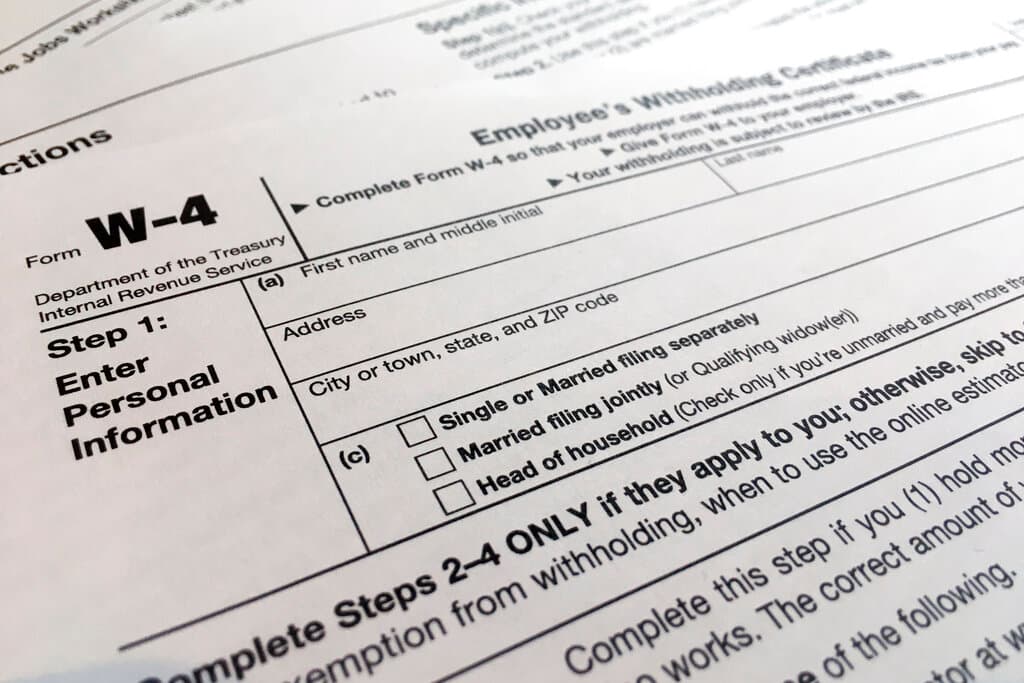Is It the States That Should Be Lowering Taxes?
The greater the share of taxation, after all, the stronger their position in the federalist system.

Is it a good thing for the American states to get rid of their own income taxes? We understand that the question might leave readers wondering whether the Sun has lost what is left of its mind. Then again, too, we ask because of the dispatch by our Sharon Kehnemui reporting that a number of states are thinking of ending their own income taxation in the face of the cataract of cash with which they have been flooded in the age of Covid.
This is no small development. Ms. Kehnemui reckons that at least 11 states have enacted beginning next year individual income tax reductions. Arizona, Idaho, Indiana, Iowa, Kentucky, Mississippi, Missouri, Nebraska, New York, and North Carolina all passed legislation in 2022 to reduce income tax rates beginning in the new year. New Hampshire, which does not have a state income tax on wages, will eliminate taxes on interest and dividend income.
Plus Utah and Arkansas also passed legislation to reduce personal income tax rates retroactive to 2022. Nine states — Alaska, Florida, Nevada, New Hampshire, South Dakota, Tennessee, Texas, Washington, and Wyoming — don’t assess personal income taxes. Officials in Iowa, North Dakota, and Wisconsin offered income tax-elimination proposals. West Virginia, Arkansas, Mississippi, Indiana, and Georgia expect the issue will come up again in 2023.
This is all well and good, up to a point. We’re certainly for the reduction of taxes of any kind. To the degree, though, that states are abandoning altogether taxation on incomes or other broad levies, we have our doubts. If we are to preserve the union as a federation of sovereign states, it seems to us the greater the percentage of revenues raised by the states from their own citizens and the less the percentage taken by the federal government, the better.
Before the rise of the welfare state and the federal bureaucratic leviathan over the course of the 20th century, most of the taxing in America was done by the cities and states. That had the advantage of leaving the taxation — and its attendant spending — subject to the closer scrutiny of the local voters whose money was being taxed. An analyst — and critic — of federal spending, Christopher Chantrill, tracks how this changed at usgovernmentrevenue.com.
In 1901, at the opening of the 20th century, to take one example, Uncle Sam’s tax cut was a little more than three percent of the gross domestic product, while the cities and states together took about 4.5 percent. In those days, federal taxes were largely limited to customs duties imposed on imports and excise taxes — primarily levies on distilled beverages and tobacco. This all changed when the 16th Amendment gave Congress the power to start taxing incomes.
That measure, ratified in 1913 — the same year Congress passed another catastrophe, the Federal Reserve Act — came about after years of agitation by Democrats and so-called Progressive Republicans who pledged that it would only apply to the wealthiest Americans. At first, the tax rate was but one percent on incomes over $3,000 — and six percent of income over $500,000. Fewer than one percent of Americans were subject to the tax at all.
By the 1930s, the federal tax share of GDP doubled, to roughly eight percent, though it still ran behind city and state levies. Uncle Sam was just getting warmed up, though. After World War II the share of GDP devoted to paying federal taxes soared above 15 percent. The war, historian W. Elliot Brownlee says, had “institutionalized a new tax regime,” featuring broad-based “progressive” income taxes, corporate taxes, and payroll taxes.
With federal taxation exceeding that of cities and states, the way was open for the expansion of the federal bureaucracy. We get that the states are some of the worst budget offenders today. Yet the GOP accession to leadership of the House will be a moment to mark that the greater federal share of taxation, the weaker the states’ relative power in our federalist system. It makes one wonder why the states ratified the 16th amendment in the first place.

